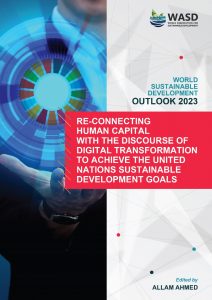The Digital Planning Implication on Spatial Justice, Khalafalla Omer
 Khalafalla Omer
Khalafalla Omer
PhD Researcher
School of Science, Engineering & Environment: Salford University
UK
Email: k.s.o.khalafalla@edu.salford.ac.uk
Paper Type: Research Paper
Received: 23 August 2023 / Revised: 23 September 2023 / Accepted: 25 September 2023 / Published: 30 December 2023
DOI: 10.47556/B.OUTLOOK2023.19.10
Abstract
Background: The government decision-making process regarding planning applications for property development proposals requires a better site context determination, efficient planning information distribution, and a communicative stakeholders’ consultation process. These requirements are the main spatial justice measurements, and it is extraordinarily complex in terms of information types, communication methods, and development stakeholders’ interests. It is difficult to manage planning applications for development proposals without making use of planning websites, online mapping programs, case management software, and document management systems. The paperwork planning process has led to a lack of communication processes, management co-ordination and community involvement, involves many invalid planning applications and is increasingly time consuming. Literature on urban planning systems has not yet addressed the impact of IT programs on the city making process, which is the main purpose of the paper.
Method: Based on interpretative, subjective, and qualitative research methods, together with previous digital planning experience, the paper will examine the impact of IT programs on spatial development, with reference to two pillars that stimulate sustainable spatial justice. These are the involvement of spatial information and the planning stakeholders’ interest during the planning application process of property development proposals.
Result: The paper reveals important sub-topics that would contribute to the impact of digital planning on spatial development. First, it highlights how to prepare planning applications using planning website information. Second, the paper addresses the impact of spatial date software on the planning application management process. Lastly, the paper examines how case management software determines inclusive consultation processes.
Conclusion: Sustainable urban development requires broad information distribution, multi-stakeholder involvement, and complex planning application processes. The planning systems have therefore become a crucial study on urban development studies. The planning systems should question the digitalisation of the planning process, not just to stimulate spatial justice, but also to ensure a sustainable built environment.
Keywords: Digital Planning; Planning Application; Spatial Justice; Case Management Software; Online Mapping; Planning Website; Document Management System.
Citation: Omer, K. (2023) “How Digital Planning Stimulates Spatial Justice”, in World Sustainable Development Outlook 2023, Vol. 19, pp. 147–163 (London, UK: WASD).

